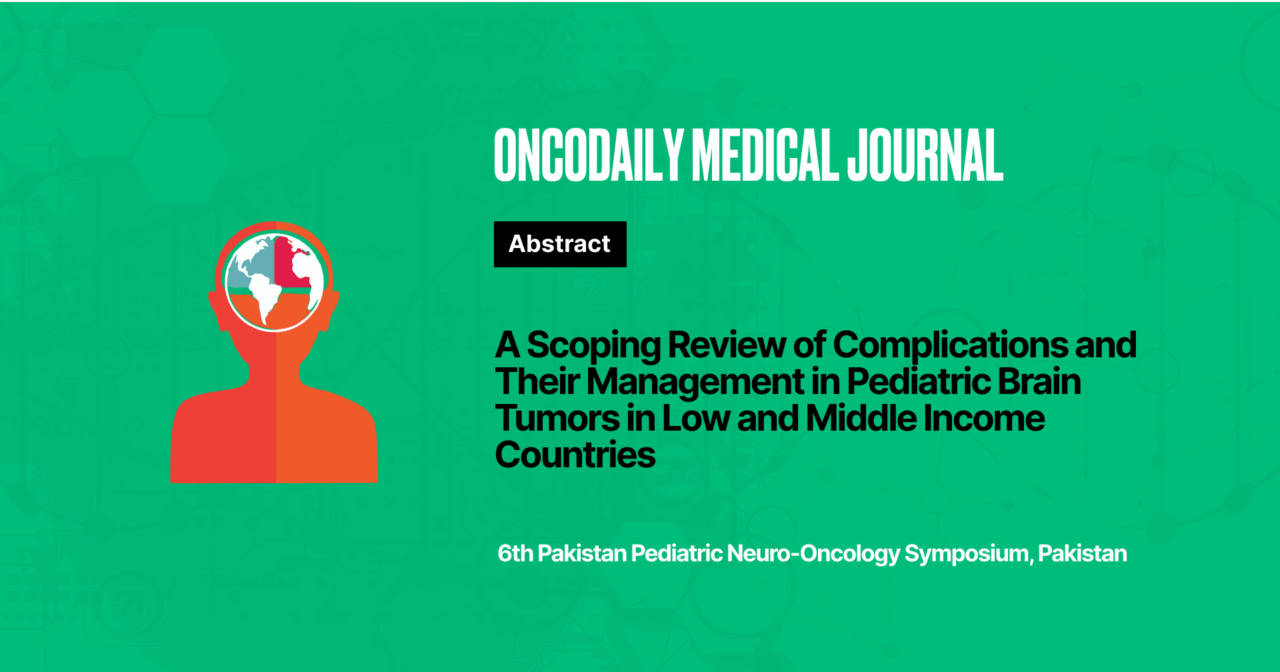A Scoping Review of Complications and Their Management in Pediatric Brain Tumors in Low and Middle Income Countries
Abstract
Introduction: Pediatric brain tumors contribute significantly to childhood illness and death, often leading to complications that diminish long-term well-being. In low- and middle-income countries (LMICs), strained healthcare systems and delays in diagnosis and treatment can amplify these challenges. This review maps the surgical, medical, and psychiatric complications experienced by children with brain tumors in LMICs and summarizes the clinical approaches used over the past three years.
Methodology: We performed a comprehensive search of PubMed and related databases for studies published from 2022 to 2024, selecting research focused on pediatric brain tumors in LMICs (per World Bank criteria). Twelve articles met the inclusion criteria. Data on types of complications and their management were extracted, then organized into surgical, medical, and psychiatric categories.
Results: Surgical complications were reported in up to half of cases, including unstable vital signs during surgery, respiratory problems post-operatively, cranial nerve damage, and fluid, electrolyte imbalances. Delayed presentation and limited perioperative support were common underlying factors. Medically, hydrocephalus affected nearly one-third of patients, seizures occurred in 25–55%, and endocrine issues, such as panhypopituitarism, diabetes insipidus, and hypothalamic obesity, were frequent. Although lifelong hormone replacement was often prescribed, many children lacked reliable access to treatment. Psychiatric and cognitive effects (anxiety, depression, attention deficits) were seldom reported but likely underrecognized. Few centers offered dedicated psychological or neurocognitive services.
Conclusions: Recent literature underscores a heavy burden of complications in pediatric brain tumor care within LMICs, driven by delayed care and resource constraints. While surgical and endocrine sequelae are increasingly documented, mental health needs remain largely overlooked. To improve outcomes, LMICs must invest in multidisciplinary teams, strengthen perioperative and follow-up care pathways, and enhance data collection on both physical and psychosocial sequelae.
Conflict of Interest: None
Funding: None
Disclosure Statement: None
License: This article is published under the terms of the Creative Commons Attribution 4.0 International License (CC BY 4.0).
© Shaiq Rehman Khan, 2025. This license permits unrestricted use, distribution, and reproduction in any medium, provided the original author and source are credited.





